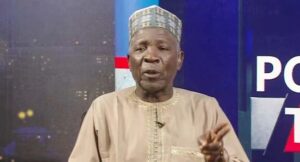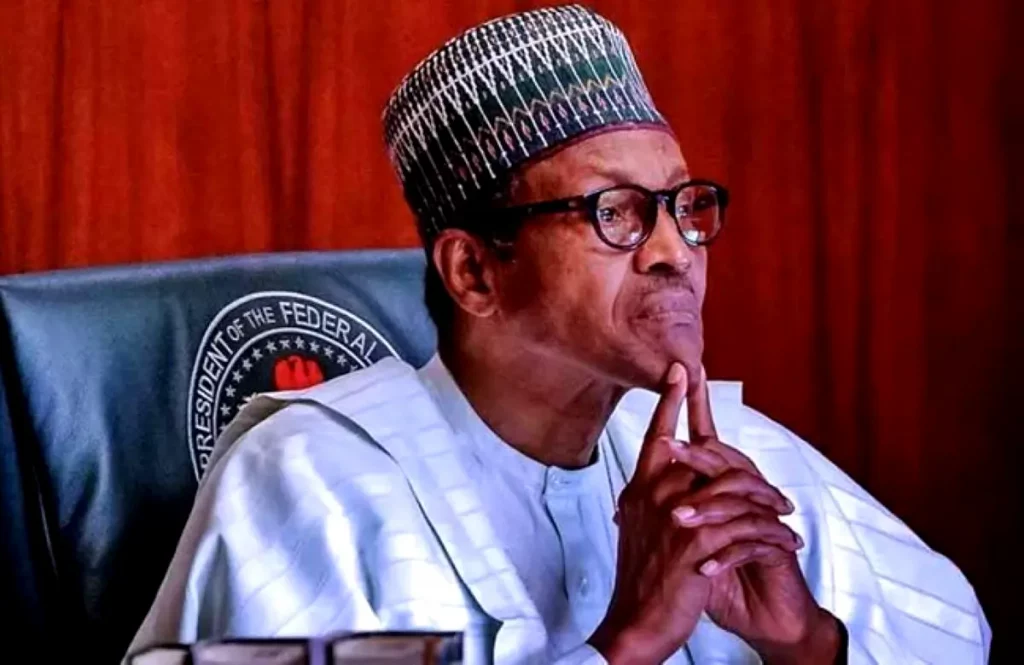A Missed Epic: The Revelation That Shook No One
An epic event passed unnoticed two weeks ago, as if a comet had scurried across the sky without drawing a single gaze, or an incubus beast ran loose on a runway without so much as a signal from the control tower. In the ruthless contest for political power in Nigeria and the often vicious race for state capture in Africa’s largest democracy, a staggering revelation surfaced: Former President Muhammadu Buhari was allegedly invited to contest the presidential election for one key purpose—to stop the O’odua Peoples Congress (OPC), which in essence symbolized the Yoruba agitation for self-determination.
This revelation rekindles old wounds and reopens the dual struggles defining Nigeria’s post-colonial history: ethnicity and religion, with ethnicity often at the forefront, closely tied to religious identity. These two elements have dominated Nigeria’s power dynamics since independence in 1960 and remain central to its political future.

Coups, Ethnic Rivalry, and the Blood-Stained Road to Power
Nigeria’s political history is marred by coups driven by ethnic discontent. Of the four dominant groups—Fulani, Yoruba, Igbo, and ethnic minorities—three have attempted to seize power violently:
- The Igbo-led coup of January 1966, despite being masked with nationalist propaganda, sparked ethnic tensions.
- The counter-coup of July 1966, led by the Fulani with Northern minority General Yakubu Gowon as a pawn, restored Northern dominance.
- Ethnic minority-led coups, first by Col. Bukar Dimka (Plateau, 1976) and later by Major Gideon Orkar (Tiv, Benue, 1990), failed, and their actors were branded villains despite their efforts to challenge ethnic marginalization.
Notably, only coups initiated by Fulani or their proxies have succeeded, reinforcing a narrative of Fulani dominance in Nigeria’s leadership.

Galadima’s Bombshell: The OPC and Buhari’s Political Entry
Weeks ago, Buba Galadima, a prominent Northern politician, jolted the national discourse. He revealed that the motivation behind Buhari’s presidential candidacy in 2015 was to protect Fulani interests in Ilorin and neutralize the OPC. His chilling account brought the Northern power game into public focus.
Galadima disclosed that a small but powerful group within the North orchestrated Buhari’s political rise. According to him, around 1999–2000, the OPC was gaining momentum in the South-West and allegedly mobilizing 500 vehicles to invade Ilorin, threatening the Fulani presence. Obasanjo, then President, and Tinubu, then Governor of Lagos, were perceived as inactive. Fearing for Fulani hegemony, Galadima convened a meeting in Kaduna to explore options, including removing the government “through the ballot or the barrel of a gun.” Buhari was identified as the ideal candidate. His initial skepticism was eventually subdued, and his political career was launched.
Their first major rally in Daura shook Obasanjo’s administration. According to Galadima, this pressure forced Obasanjo to “checkmate” the OPC. Thus, Buhari’s political career was not founded on national interest or reform but on an agenda to stop the Yoruba nationalist group.

Fulani Hegemony: History, Power, and the Pursuit of Nigeria
To understand the depth of Galadima’s revelation, one must examine the Fulani ruling class, historically adept at power consolidation.
Emerging from a blend of Arab, Berber, and Tuareg ancestry, the Fulani spread across Senegal, Mali, Niger, Nigeria, Cameroon, and beyond. Their presence in Nigeria, marked by Usman dan Fodio’s jihad, led to the conquest of Hausa territories and incursions into Yoruba land. Despite being a minority, the Fulani have maintained disproportionate control over Nigerian politics, either through military coups or democratic manipulation.
Sociologists have described the Fulani as highly intelligent, resilient, and proud, with a strong cultural identity and memory of past injustices. Nigeria remains, to them, the last stronghold—a land they must own and control at all costs.

Buhari’s Presidency: A Fulani Agenda in Disguise?
Galadima’s account redefines Buhari’s presidency. The railway to Niger Republic, the Fulfulde-only government radio, and the appointment of kinsmen to strategic roles—all point to an ethnic preservation agenda, not a national development vision.
The anti-corruption and security mantras were smokescreens. Buhari’s presidency, as revealed, was never intended to serve all Nigerians but to halt the rise of Yoruba self-determination and maintain Fulani supremacy. This echoes the rationale behind Obasanjo’s 1999 presidency, which aimed to neutralize Yoruba separatist momentum following the annulment of the 1993 election. Obasanjo, in response, cracked down on OPC, declared Gani Adams wanted “dead or alive,” and jailed Dr. Fredrick Faseun.
Similarly, Jonathan’s presidency was interpreted as a strategy to douse Niger Delta militancy through amnesty and pipeline contracts. However, these moves addressed symptoms—not causes—of Nigeria’s enduring National Question.

Herdsmen Terrorism and the Weaponization of Insecurity
Under Buhari, herdsmen terrorism soared. Armed Fulani militias occupied indigenous territories, renamed communities, and became a parallel power structure, protected and emboldened by the state. Government complicity was evident in the freedom with which Sheik Gumi interacted with terrorists.
The Kaduna airport attack, train bombings, and repeated massacres went unpunished. During the APC presidential primary, security meetings were allegedly called to stop Tinubu’s emergence. Galadima’s revelation suggests the armed herdsmen’s strategy was not mere banditry but a calculated tool to intimidate and dominate.

A Poisoned Terrain: Nigeria’s Unresolved Nationality Question
Galadima’s exposé reveals the terrifying truth: Nigeria has never had a President or Head of State without a hidden ethnic agenda, often dictated by a Northern cabal.
Within APC, Buhari’s coalition partners (ACN, ANPP, and APGA) were unaware of the ethnic agenda. They were pawns. The tiny Fulani clique designed and executed a plan that served only themselves. Buhari’s running mate, Prof Yemi Osinbajo, though intellectually capable, was blindsided, along with the region he represented.
This revelation calls into question every major political development since independence. Power has always been brokered by a small elite, ignoring the masses and using elections as formalities. From coups to “democratic transitions,” the true motivations have been ethnic survival, not national progress.
Where Nigeria Stands: A Country Without Foundations
65 years after independence, Nigeria remains a fragile experiment. Ethnic mistrust festers. The South and North are saturated with illicit arms. IDP camps swell—Benue alone houses 2 million displaced persons.
The refusal to honestly engage the National Question has led to civil war, coups, and rising armed resistance. Lawmakers ignore this looming crisis while indulging in obscene privileges. New states are demanded not for development, but for more governors’ lodges and political appointments.
Every new election exposes our deep ethnic divide and the violent contest for control. While many Nigerians still believe in the illusion of unity, the nation is an unbalanced house, propped up by curtains and cushions while its pillars crumble.

Conclusion: Time Is Running Out
Nigeria is not one country but a collection of forcibly joined nations. The unwillingness to restructure is pushing us closer to an internal combustion.
Galadima’s revelation may be ignored now, but it has unmasked the motives behind decades of leadership choices. Until Nigeria’s ethnic nationalities come to the table to address their fears—especially the Fulani’s—the landmines beneath our fragile union will keep ticking.
Let us stop building the house from the rooftop. No cosmetic reforms can hold together a foundation already collapsing.




